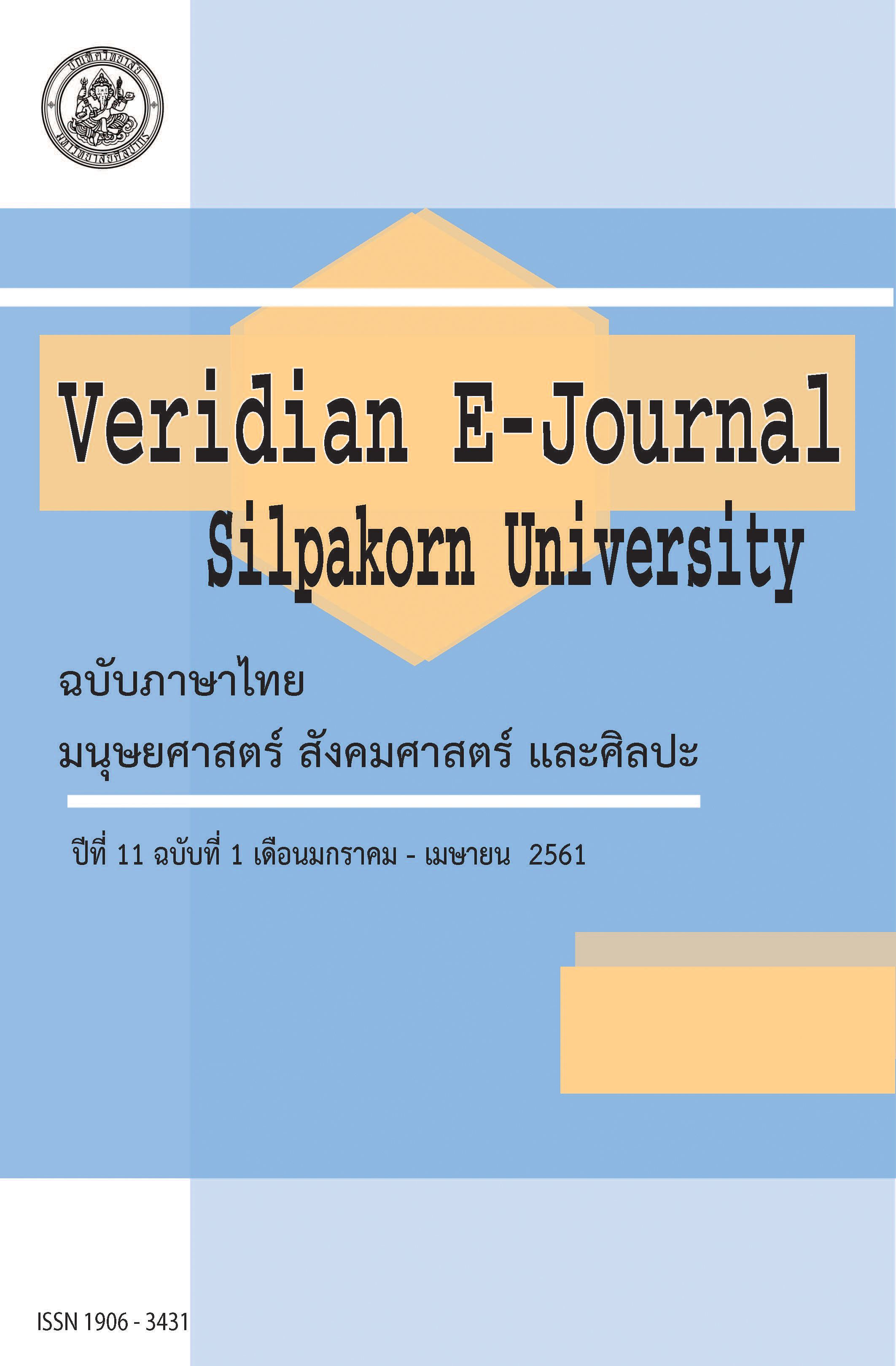เปิดกฎความสุภาพของแล็กคอฟฟ์ และหลักการความสุภาพของลีช กับการศึกษาพฤติกรรมการสื่อสารที่สะท้อนถึงความสุภาพในวัฒนธรรมตะวันออกได้จริงหรือ (Uncover Lakoff’s Rules of Politeness and Leech’s Politeness Principle and Their Applicability to Study Communicative Be Uncover Lakoff’s Rules of Politeness and Leech’s Politeness Principle and Their Applicability to Study Communicative Behaviour Reflecting Politeness across Eastern Cultures?
Main Article Content
Abstract
ทฤษฎีที่เกี่ยวกับการศึกษาความสุภาพหรือหน้าตาได้รับการนำเสนอโดยนักภาษาศาสตร์หลากหลายคน หนึ่งในทฤษฎีแรกๆ ที่ได้รับความสนใจ ได้แก่ กฎความสุภาพของแล็กคอฟฟ์ และหลักความสุภาพของลีช ซึ่งได้รับการพิสูจน์ในระดับหนึ่งว่าสามารถประยุกต์ใช้ในการศึกษาพฤติกรรมการสื่อสารที่สะท้อนความสุภาพในระดับประโยคในวัฒนธรรมตะวันตกได้ แต่คำถามคือ ทฤษฎีดังกล่าวสามารถประยุกต์ใช้ได้ในวัฒนธรรมตะวันออกได้จริงหรือไม่ บทความฉบับนี้จึงประสงค์ที่จะพิสูจน์คำถามดังกล่าว และเปิดเผยจุดแข็งจุดอ่อนของทฤษฎีทั้งสอง ผลจากการทบทวนวรรณกรรมและการวิพากษ์ ได้เปิดเผยว่า แทบจะไม่มีงานวิจัยที่ศึกษาพฤติกรรมการสื่อสารที่สะท้อนถึงความสุภาพในวัฒนธรรมตะวันออกที่ประยุกต์ใช้กฎความสุภาพของแล็กคอฟฟ์ และหลักความสุภาพของลีช จึงขาดหลักฐานมากพอที่จะสรุปได้ว่าทฤษฏีดังกล่าวสามารถใช้วิเคราะห์พฤติกรรมการสื่อสารของชาวตะวันออกได้จริง โดยเฉพาะในวัฒนธรรมไทย และมีแนวโน้มว่าทฤษฎีทั้งสองจะไม่สามารถประยุกต์ใช้ได้จริง เนื่องจากทฤษฎีทั้งสองขาดมุมมองที่เกี่ยวข้องกับลักษณะเฉพาะของภาษาตะวันออกที่มักจะถูกเชื่อมโยงกับบริบททางสังคมวัฒนธรรม เช่น ในภาษาไทย จีน และญี่ปุ่น
There have been several theories of politeness proposed by the number of linguists. Some of those theories that were in focus included Lakoff’s Rules of Politeness and Leech’s Principles of Politeness (PP). They were proven regarding their applicability to study communicative behaviour related to politeness at the sentence level across Western cultures. The question is whether it is applicable to explore communicative behaviour reflecting politeness across Eastern cultures. This paper aims to scrutinize this question and reveal both strengths and weaknesses of those theories. The critical suggestions after reviewing the literature indicated that there has hardly been any research in the study of politeness across Eastern cultures that applied either Lakoff’s Rules of Politeness or Leech’s PP. Therefore, there is insufficient evidence to warrant that those theories are truly applicable to the study of politeness across Eastern cultures, in particular in Thai culture. Instead, it is likely to say that they seem inapplicable to the study of politeness across Eastern cultures because of their absence of awareness of specific linguistic features related to socio-cultural norms broadly found in several Eastern languages such as Thai, Chinese and Japanese.

